Face masks in classrooms are no longer required in Scotland’s secondary schools – the rule scrapped on Monday.
But how do young people who have worn face coverings most of the day – some since October 2020 – feel about taking them off at their desks?
Many adults are strongly against face masks in classrooms, while others supported the requirement, seeing it vital to reduce the risk of infection from Covid-19.
We asked pupils for their opinions at Viewforth High School, in Kirkcaldy, where head teacher Lisa Moore said she was surprised at the number still wearing coverings in class on the first day of the requirement being lifted.
What did young people tell us?
Aiden McVay, S5, told us his mask will remain on in class sometimes.
He said: “It is the new normal, it’s life now and it’s definitely going to be weird getting rid of them.
“I think I will still keep wearing it, it’s not safe fully yet, Covid is still out there and it won’t be gone for a while.”
With Higher exams looming, he worries about the big number of pupils who will be mixing in exam halls and the risk of infection.
Fellow fifth year pupil Katrina Donald also said she is likely to keep her mask on in some classes.
“It depends on how crowded the classroom is. In classrooms with more people and people you don’t see frequently you might want to wear it but in classrooms with fewer people and people you are around more it might feel more comfortable to take it off.”
Wearing face coverings has created a communication barrier, she pointed out, with pupils and teachers unable to hear each other properly at times.
“As the months progressed it’s felt a bit more normal but it has caused problems.”
Wearing face coverings has been “quite a struggle”, according to Jack Ovenstone, S5.
He said: “Teachers can’t really hear you properly, you have sound issues.
“It feels restrictive but now they are off it might be a bit more open. It feels much more airy, you can breathe properly now.”
You feel it’s on the route to normality again.”
Jack Ovenstone, S5
With Omicron on the rise as schools returned after the Christmas holiday, he was worried about the potential impact on exams.
“Face masks at that point were very current, but I think because it’s kind of dying down now and there are no new variants you feel more comfortable without a face mask.
“You feel it’s on the route to normality again.”
Chloe Wilson, S5, said: “It’s been hard but you get used to it [wearing a mask] after a while. We’ve been wearing them for so long now it feels like the normal thing.
“The only thing is people can’t really hear you and you can’t hear teachers sometimes if you are sitting at the back.
“In classrooms where it’s more crowded I will probably keep it on but sometimes in smaller classes it will be fine to take it off.”
Fourth year pupil Elliot Tomlinson suffers from asthma and wearing a mask can cause breathing difficulties if it flares up.
Even so, he said wearing a covering in class has been “fine” but dropping the requirement is a step “back to normality”.
Covid levels were a lot higher and we needed them to make sure we were safe.”
Elliot Tomlinson, S4
He said: “Covid levels were a lot higher and we needed them to make sure we were safe and we didn’t get Covid and be off and miss stuff.”
Will he still wear his mask in class?
“Sometimes. It will depend on the number of people and whether it’s people I know or different people.”
Pupils ‘will be supported’ whatever they choose
Staff and pupils will be supported whether they choose to wear a face covering or not in class, said head teacher Lisa Moore.
She said: “I’ve been surprised this morning at the number of staff and pupils who are choosing to still wear their face coverings.”
A number of young people and staff in the school have tested positive for Covid recently, she said, and she reckons confidence might take time.
Young people are very attuned to the fact Covid is still there.”
Head teacher Lisa Moore
“Young people are very attuned to the fact it is still there. It’s maybe not making people as ill as it did previously but it’s still causing people to take time out of being in school, and particularly for our seniors, with the final push towards exams, that is a real worry for them and their families.”
First year pupils, she pointed out, had worn face coverings for their entire high school careers and second year pupils for most.
Mrs Moore has mixed feelings about wearing a mask in the classroom herself now the requirement has been lifted.
She said: “I’m very much in support of my staff and young people if they choose to still wear face coverings. I’m not 100% sure yet where I will be with that.”
What are the problems of face coverings in classrooms?
The communication barrier between teachers and pupils is considered the main issue of face masks in classrooms – magnified for those with hearing impairment.
Also, Mrs Moore told us: “It can be really uncomfortable wearing them all day and for teenagers it’s not pleasant; it can get warm it can affect their skin.”
As young people lose face coverings frequently, schools hand out a lot of disposable masks.
Staff also have to keep abreast of which pupils are exempt so they aren’t challenged for not wearing a covering.
What are the rules on face masks in schools now?
Secondary school pupils are still required to wear face coverings in communal areas, such as corridors and assembly halls, and when moving around school buildings.
However, they no longer have to wear their masks once inside their classrooms.
Pupils and teachers who do wish to continue wearing a face covering will, according to Scottish Government guidance, be fully supported in doing so.
Primary school pupils have never been asked to wear face masks.
Restrictions on school assemblies and transition visits for pupils who will start primary or secondary school in August 2022 are also now eased.
How high are Covid rates in schools?
There was a surge in Covid cases in schools in late January, mirroring the rate of transmission in the community.
However, last week the number of pupils absent with a Covid-related illness in Fife schools had fallen to 362 from a high of 1,289 in January.
Covid illness absence rates have also reduced significantly in Angus, Dundee and Perth and Kinross schools.
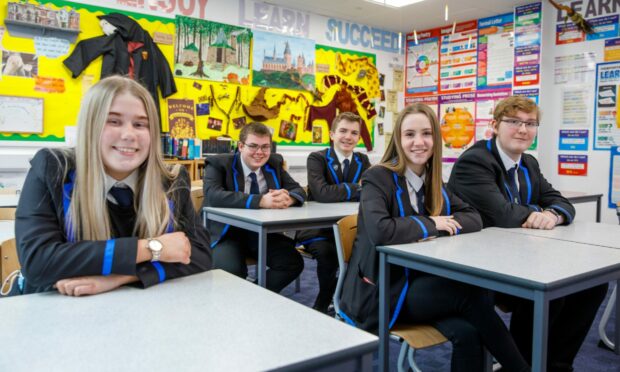
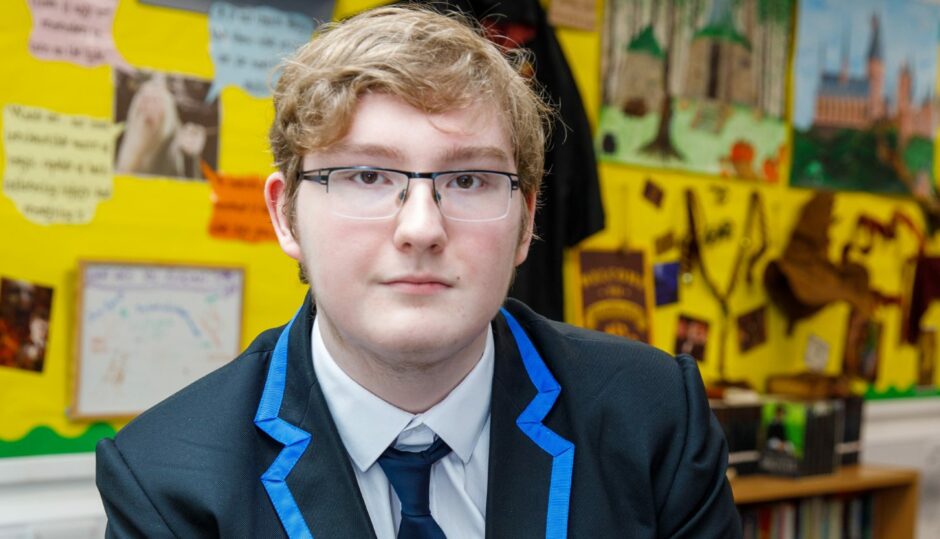
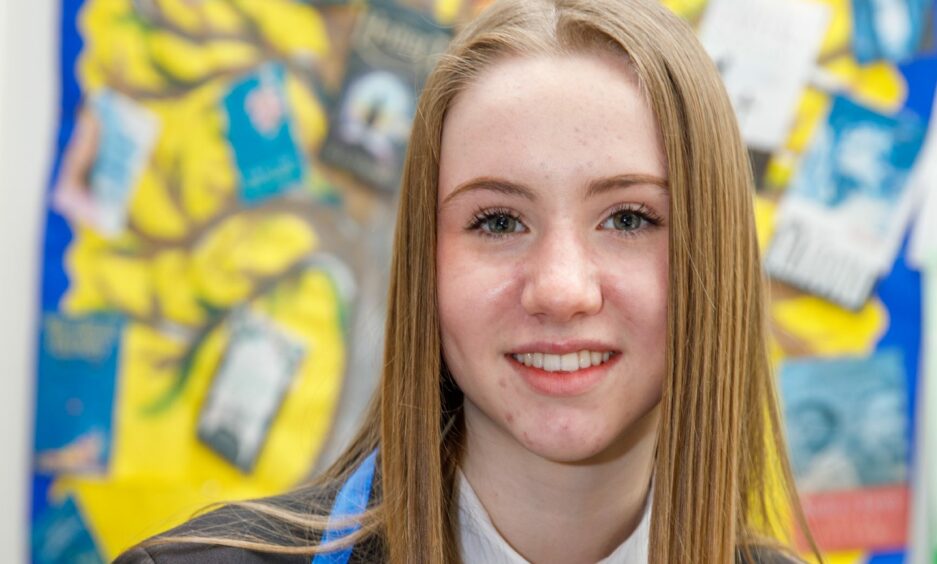
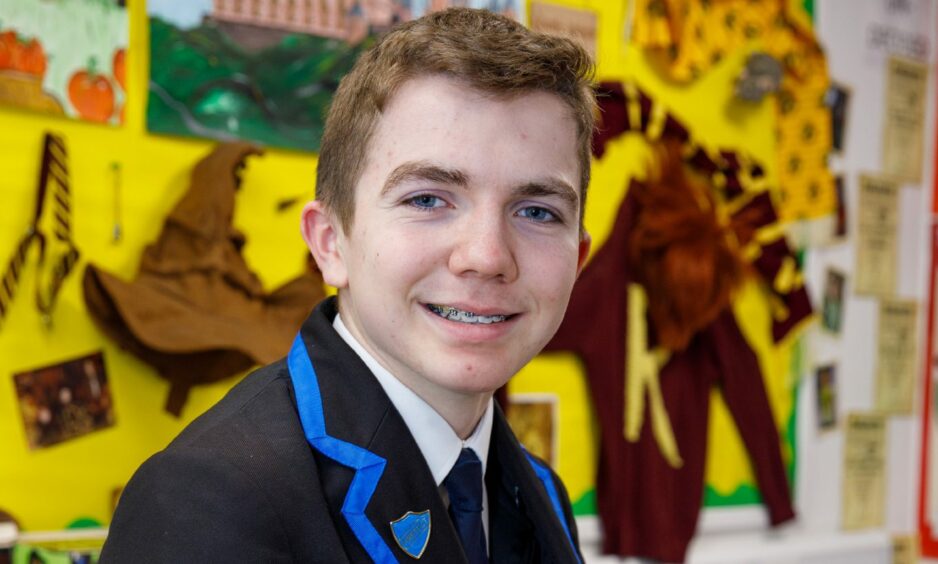
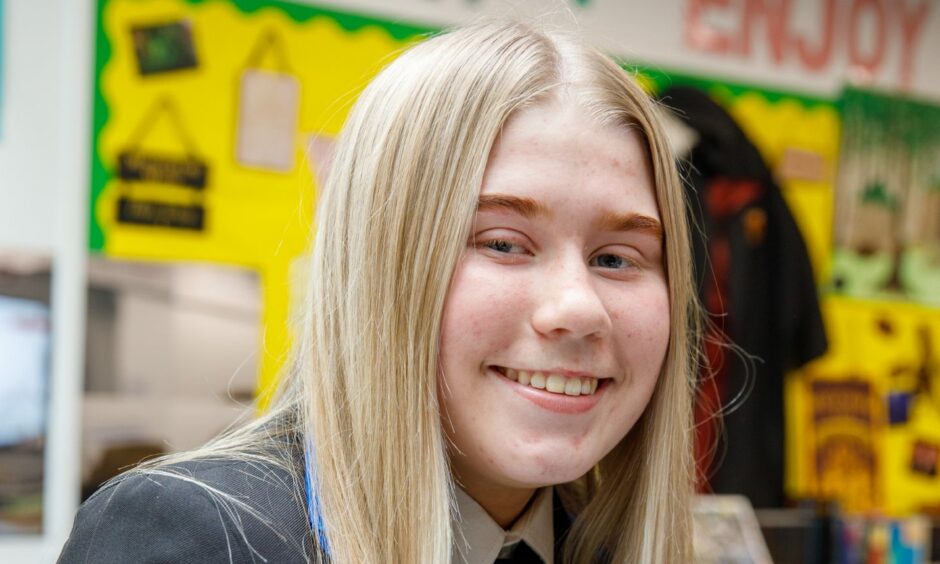
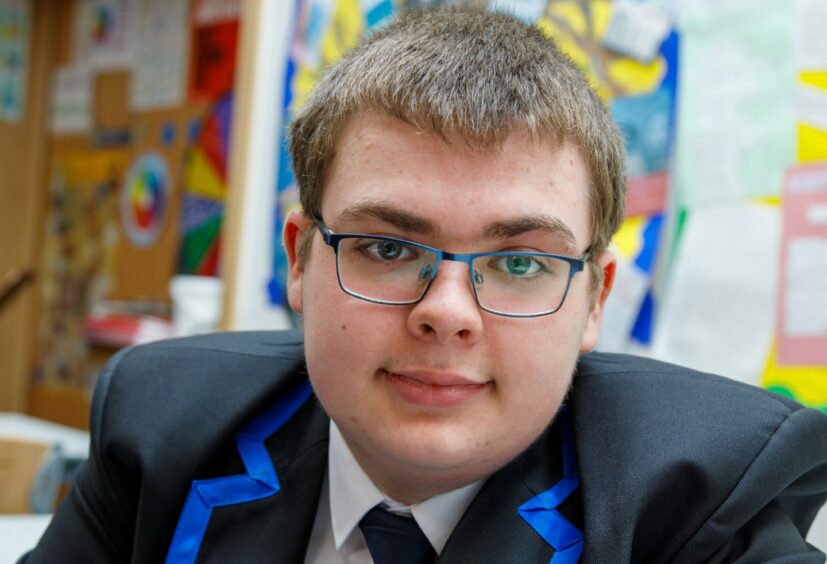
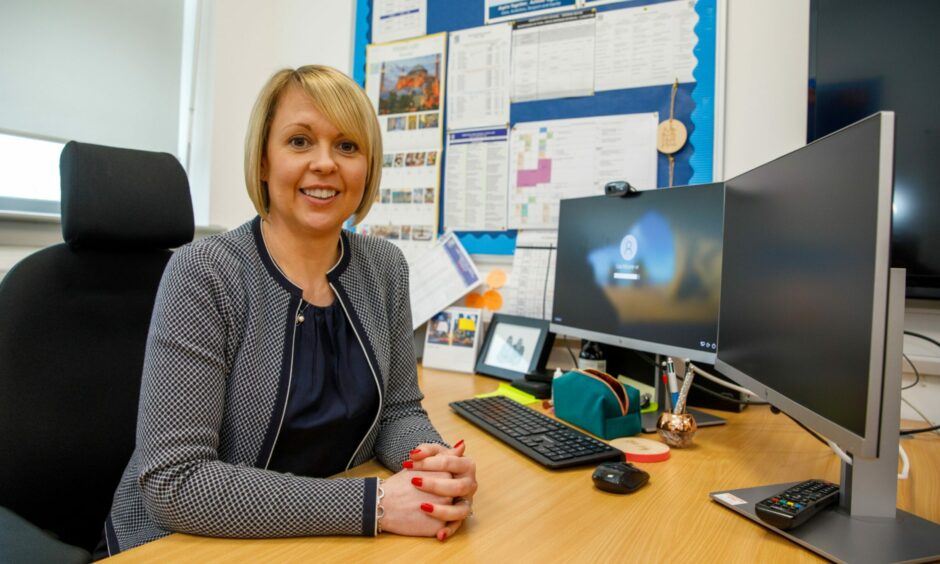
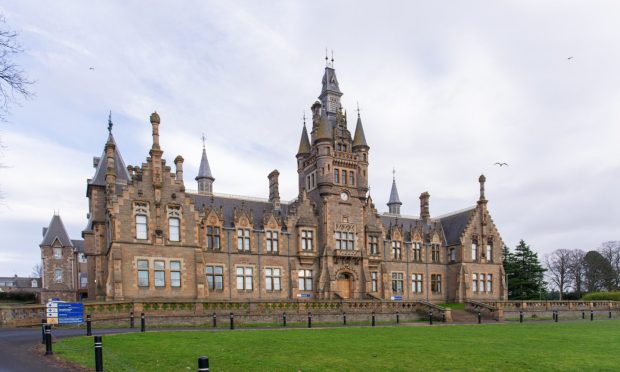

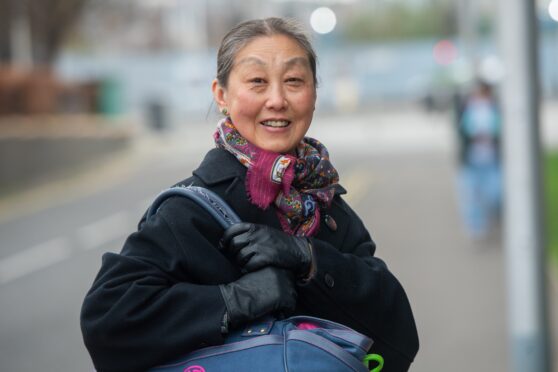
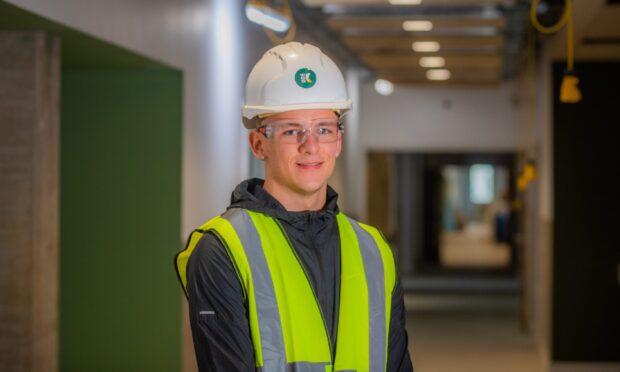




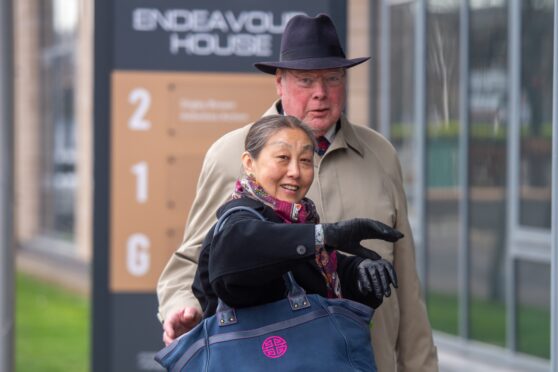
Conversation